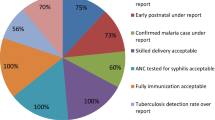Abstract
Data is the basis for designing information. In the healthcare, the management of data can improve patients’ treatment and contribute to better provide healthcare services. This study aims to explore how health data are treated in the national health system in Mozambique.
The methodological strategy was based on a qualitative analysis, through a semi-structured interview made to the manager of the health information department, supported by a bibliographic search based on PRISMA. The keywords used were data, value, and healthcare, with a limitation of the articles researched. For the work, only articles referring to these terms and with access were included. After screening the articles, considering the criteria used, 49 articles were analyzed. 17 articles were then included in this study.
The results of this article are important, as they offer information about the treatment of health data. Through the study it was possible to verify how essential the treatment of health data is, as it helps in decision making. It was also possible to conclude that it is necessary to computerize data and information on health, in Mozambique. The use of the health information system serves as a mechanism for the collection, processing, analysis, and transmission of information to plan, organize, operationalize, and evaluate health services.
In this way, health data, when in computerized systems, assist in decision support, decreasing the hypothesis of errors and accelerating the decision-making process by health professionals.
Access this chapter
Tax calculation will be finalised at checkout
Purchases are for personal use only
Similar content being viewed by others
References
Siqueira, M.C.: Gestão estratégica da informação. Rio de Janeiro (2005)
Neves, A.L., et al.: Health care professionals’ perspectives on the secondary use of health records to improve quality and safety of care in England: qualitative study. J. Med. Internet Res. 21(9), 1–10 (2019)
König, S., et al.: In-hospital mortality of patients with atrial arrhythmias: insights from the German-wide Helios hospital network of 161 502 patients and 34 025 arrhythmia-related procedures. Eur. Heart J. 39(44), 3947–3957 (2018)
Instituto Nacional de Estatística Moçambique, INE Destaques — Instituto Nacional de Estatistica (2020). http://www.ine.gov.mz/. Accessed 13 Jul 2020
Ministério da Saúde, “SISMA - Sistema de Informação para Saúde em Monitoria e Avaliação,” (2019). http://sisma.saudigitus.org/. Accessed 13 Jul 2020
United Nations Development Program, Human Development Report 2019 (2019)
World Health Organisation, Communicable Diseases Cluster| WHO| Regional Office for Africa (2020). https://www.afro.who.int/about-us/programmes-clusters/communicable-diseases-cluster. Accessed 13 Jul 2020
Martins, A., Freitas, R.P., Ribeiro, S.: Benchmarking: Ficha de País, Moçabique (2013). http://www.healthyn.pt/Images/Documentos/Benchmarking_Moçambique.pdf. Accessed 13 Jul 2020
Vélez, M., Wilson, M.G., Abelson, J., Lavis, J.N., Paraje, G.: Understanding the role of values in health policy decision-making from the perspective of policy-makers and stakeholders: a multiple-case embedded study in Chile and Colombia. Int. J. Heal. Policy Manage. 1–13 (2019)
Weng, R., Huang, J., Kuo, Y., Huang, C.: Determinants of technological innovation and its effect on hospital performance. Afr. J. Bus. Manage. 5(11), 4314–4327 (2011)
Allison, T., Peter, S., Jonathan, C.: Consolidated criteria for reporting qualitative research (COREQ): a 32-item checklist for interviews and focus groups. Int. J. Qual. Heal. Care 19(6), 349–357 (2007)
Surodina, S., Lam, C., de Cock, C., van Velthoven, M., Milne-Ives, M., Meinert, E.: Engineering requirements of a Herpes simplex virus patient registry: discovery phase of a real-world evidence platform to advance pharmacogenomics and personalized medicine. Biomedicines, 7(4), (2019)
Ezran, C., et al.: Assessing trends in the content of maternal and child care following a health system strengthening initiative in rural Madagascar : A longitudinal cohort study no. DiD, pp. 1–23 (2019)
Igira, F.T.: The dynamics of healthcare work practices Implications for health management information systems design and implementation. Emerald Gr. Publ. Ltd. 12(3/4), 245–259 (2012)
Rodrigues, R.J.: Information systems: the key to evidencebased health practice. Bull. World Heal. Organ. Geneve 78(11), 1344–1351 (2000)
da; Mota, L.A.N., Pereira, F.M.S., de. Sousa, P.A.F.: Sistemas de Informação de Enfermagem: exploração da informação partilhada com os médicos. Rev. Enf. Ref. Coimbra IV(1) (2014)
Sihvo, S., Ikonen, T., Mäkelä, M.: Implementing health technology assessment-based recommendations in Finland: managed uptake of medical methods. Int. J. Technol. Assess. Health Care 33(4), 430–433 (2017)
Liberati, A., et al.: The PRISMA statement for reporting systematic reviews and meta-analyses of studies that evaluate health care interventions: explanation and elaboration. J. Clin. Epidemiol. 6(7), 1–28 (2009)
Rama, N.J., Pimentel, J.M.P., Raposo, V.: A importância das bases de dados na gestão do conhecimento em saúde. Rev. Port. Ciurgia 36(2), 436–437 (2016)
Roque, A.C.: Disease and cure in Mozambican health service reports from the end of the nineteenth century. Hist. Ciencias, Saude - Manguinhos 21(2), 515–537 (2014)
Graciano, M.M.C., Araújo, E.W., Nogueira, D.A.: Sistema de informação em saúde e atuação do profissional médico. Rev. Médica Minas Gerais 19(3), 198–205 (2009)
dos Santos, T.O., Pereira, P.L., Silveira, D.T.: Implantação de sistemas informatizados na saúde: uma revisão sistemática. Rev. Eletrônica Comun. Informação e Inovação em Saúde, 11(3), 1–11, (2017)
Guedes, A.: A aceitação do registo de saúde eletrónico pelos profissionais de saúde das instituições hospitalares. Escola Nacional de Saúde Publica, Universidade Nova de Lisboa (2011)
Pinto, L.: SI e profissionais de enfermagem., Universidade de Trás-os-Montes e Alto Douro (2009)
Author information
Authors and Affiliations
Corresponding author
Editor information
Editors and Affiliations
Rights and permissions
Copyright information
© 2021 The Author(s), under exclusive license to Springer Nature Switzerland AG
About this paper
Cite this paper
Burine, L., Polónia, D., Gradim, A. (2021). How Health Data Are Managed in Mozambique. In: Rocha, Á., Adeli, H., Dzemyda, G., Moreira, F., Ramalho Correia, A.M. (eds) Trends and Applications in Information Systems and Technologies . WorldCIST 2021. Advances in Intelligent Systems and Computing, vol 1366. Springer, Cham. https://doi.org/10.1007/978-3-030-72651-5_37
Download citation
DOI: https://doi.org/10.1007/978-3-030-72651-5_37
Published:
Publisher Name: Springer, Cham
Print ISBN: 978-3-030-72650-8
Online ISBN: 978-3-030-72651-5
eBook Packages: Intelligent Technologies and RoboticsIntelligent Technologies and Robotics (R0)




